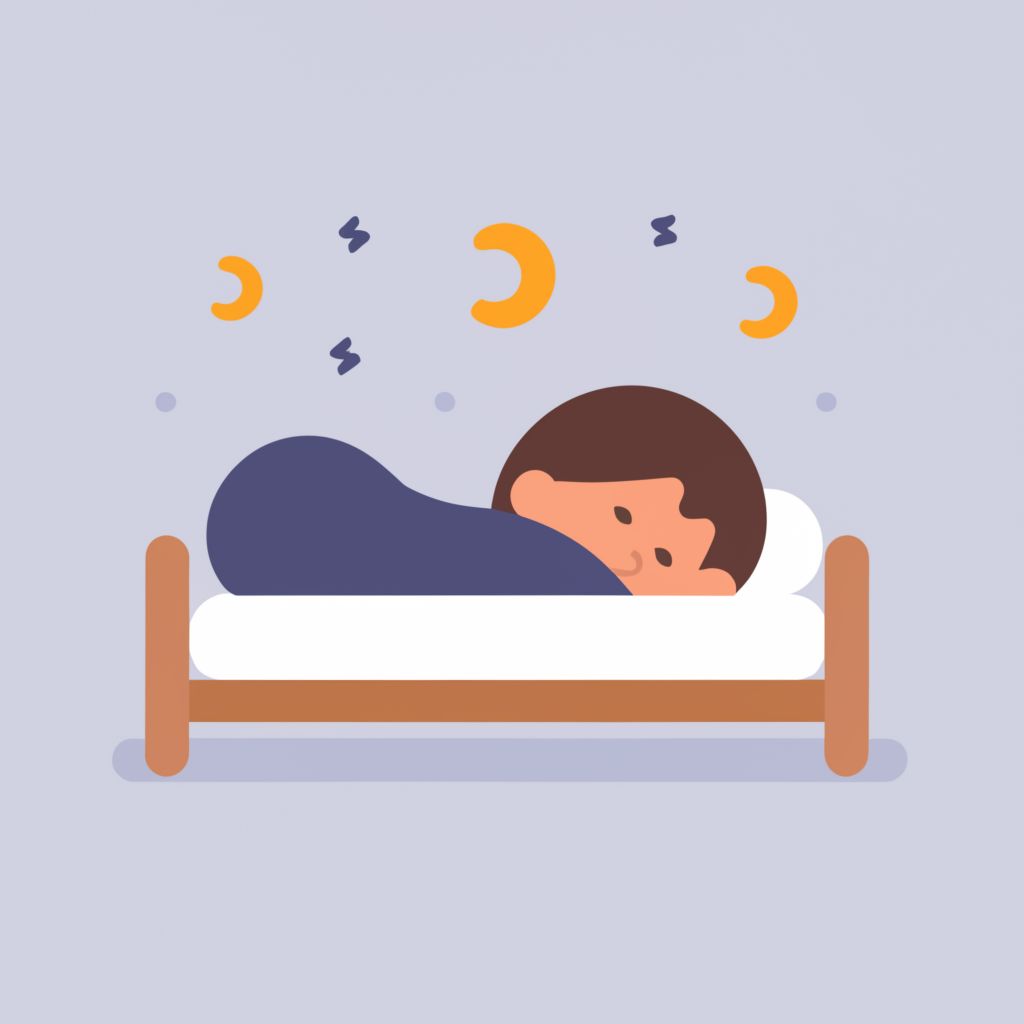Physical Address
304 North Cardinal St.
Dorchester Center, MA 02124
Physical Address
304 North Cardinal St.
Dorchester Center, MA 02124

Tucking hands while sleeping can be a habit or a comfort measure. It might also relate to a natural instinct for warmth and protection.
Sleeping with hands tucked can originate from various factors, including personal comfort, temperature regulation, or instinctive behavior for safety. For some, this position mimics the natural pose in the womb, offering familiarity and solace. People often choose sleeping positions that reduce stress and provide warmth, with hand tucking falling into this category.
This practice can also be a method for retaining body heat or protecting the hands during rest. Exploring the preference for tucking hands while sleeping can provide insights into individual comfort levels and subconscious behavior patterns. It shows how even in rest, our bodies instinctively seek conditions that are conducive to relaxation and security.
The Phenomenon of Hand Tucking in Sleep draws curiosity from many. Tucking hands is a common behavior during slumber. This act might hold the key to a deeper understanding of sleep habits and what they say about our needs for comfort and security at night.
The fetal position, with hands tucked, is a go-to sleeping stance for many. This posture is more than just a habit—it’s a return to the earliest state of comfort known to us. From the safety of the womb, this position has been imprinted as a symbol of serenity and protection, guiding many into its embrace every night.
Self-soothing is a way to deal with anxiety and to find peace. Tucking hands can be a subconscious way to calm down. It is a soothing action that helps to manage stress and induce a state of sleepiness. It is an instinct we carry within, perhaps reflective of early human behaviors to keep warm and safe from predators.
| Instinctive Behavior | Benefits |
|---|---|
| Hand Tucking | Induces calmness and security |
| Fetal Position | Protective, comforting, sleep-promoting |
Credit: www.umc.edu
Exploring the mysteries of our nightly rituals, we find that sleep gestures, such as tucking hands, offer fascinating clues about our inner selves. Let’s dive into psychological insights behind these subconscious actions and uncover what they reveal about our well-being.
Feeling safe and secure is fundamental to good sleep. Tucked hands might signal a need for protection or comfort. During stressful times, this protective posture can be more pronounced as our bodies respond to psychological tensions. Interestingly, studies suggest that certain sleep positions can even alleviate stress, linking our mental state directly to physical gestures.
Our dreams can be wild and vivid. They often dictate how we move in our sleep. If you’re dreaming about holding something precious or navigating a tight space, your hands might naturally tuck in for the journey. The subconscious directs our body, translating dream experiences into physical reactions.
| Dream Scenario | Likely Sleep Gesture |
|---|---|
| Protecting an object | Hands tucked in |
| Moving through confined spaces | Arms close to body |
Recognizing these patterns can help us understand the language of sleep—a direct line to our deep-seated thoughts and emotions. By examining your sleep gestures, such as tucking your hands, you unlock clues to your subconscious.
Exploring the reasons behind tucked hands during sleep unveils fascinating physiological insights. Let’s dive into the natural mechanisms that lead to this common sleeping posture.
Our bodies have a unique way to maintain a comfortable temperature while we rest. Tucked hands play a role here.
Different phases of sleep demand various muscle states. To ensure deep, healing rest, muscles must relax.
| Restorative deep sleep: | Hand tucking reduces tension and promotes relaxation. |
| Muscle maintenance: | Relaxed hand posture safeguards muscles and joints. |

The way we sleep is shaped by deep-rooted cultural habits and evolutionary history. Our nocturnal behaviors, like tucking our hands, are fascinating blends of learned customs and age-old survival mechanisms. Let’s dive into the cultural and evolutionary influences on this sleep posture.
Sleeping habits can vary widely across different societies. While some cultures prefer sleeping on mats on the floor, others use raised beds. The common practice of tucking hands in while sleeping spans many cultures and climates.
Evolution plays a crucial role in our sleeping postures. Primal instincts dictate actions even in modern humans.
| Instinctive Action | Purpose |
|---|---|
| Hand Tucking | Prevents heat loss and protects vital organs. |
| Curling Up | Mimics an embryonic state, offering a sense of security. |
| Facing Down | Helps breathing and shields the face in dangerous environments. |
Sleeping with hands tucked is, therefore, more than just a habit; it’s an embodied ritual connecting us with our ancestors and diverse cultures worldwide.
Tips for Healthier Sleep Habits can transform your night’s rest into a powerhouse of energy for the day. Embrace these changes, and you might just find those hands untucking themselves as your body relishes in newfound comfort.
Begin with where you sleep. Your bedroom should be a sanctuary, aimed at providing the best conditions for restful slumber. Ensure it’s cool, dark, and quiet. Consider using blackout curtains, white noise machines, or earplugs. Keep tech devices away to avoid blue light exposure before bed, which can disrupt sleep cycles.
A good mattress and pillow align with your sleeping style and offer proper support. If your mattress sags or your pillow is lumpy, it’s time for an upgrade. Memory foam can contour to your body, while a firmer mattress might be better for back support.
Pick pillows that support your neck and align your spine. Side sleepers often benefit from thicker pillows, back sleepers may prefer medium thickness, and stomach sleepers often opt for a softer, flatter pillow to reduce neck strain.
| Sleeping Position | Mattress Type | Pillow Thickness |
|---|---|---|
| Side Sleepers | Medium-Firm | Thicker |
| Back Sleepers | Medium to Firm | Medium |
| Stomach Sleepers | Soft to Medium | Flatter |
Beyond the right mattress and pillows, a regular sleep schedule matters too. Aim to go to bed and wake up at the same time daily, even on weekends. Build a pre-sleep routine that might include reading, a warm bath, or light stretches. Cut off caffeine at least six hours before bed, and limit heavy meals close to bedtime.
Tucking hands while sleeping is a common behavior. Many find comfort in this position. Yet, sometimes, it may hint at underlying issues. Not all cases cause for alarm. Still, it’s good to stay informed. Let’s explore when this habit could be more than just a comfort thing.
Certain sleep disorders manifest in unusual ways. Hand tucking may be one. Restless leg syndrome or periodic limb movement can cause this. Even anxiety or stress might lead to tucking hands in sleep.
Signs to watch for include:
These symptoms can overlap with other conditions. So proper diagnosis is crucial.
If uncommon symptoms persist, consult a professional. A sleep study or visit to a neurologist might be recommended. They evaluate sleep patterns and diagnose accordingly.
| Concern | Action | Professional |
|---|---|---|
| Restless Sleep | Sleep Study | Sleep Specialist |
| Movement Disorders | Neurological Assessment | Neurologist |
| Stress and Anxiety | Counseling | Therapist |
Early intervention can help. Seek advice if you observe unusual sleep behaviors.
Tucking hands in while sleeping is often a comfort gesture. It mimics the fetal position, providing a sense of security and warmth. This posture can also prevent the body from feeling exposed or vulnerable during sleep.
Hand-tucking is usually a normal sleep behavior and not a health concern. It indicates a preference for warmth and comfort. However, if accompanied by restlessness or discomfort, it could suggest underlying sleep issues.
Sleeping with hands tucked does not typically affect sleep quality. It is a common position that many find comfortable. If no discomfort or numbness occurs, it’s considered a harmless sleep habit.
Hand-tucking while sleeping can be linked to psychological factors. It may signify a need for self-comfort or relate to one’s emotional state. Those seeking extra security may subconsciously prefer this position.
Exploring the quirks of our sleep habits can be fascinating. Tucking hands while sleeping is a common, comforting practice linked to security and warmth. Understanding this behavior can enhance your sleep quality. Embrace your unique sleep style and remember, it’s all about what feels right for you.
Sweet dreams!